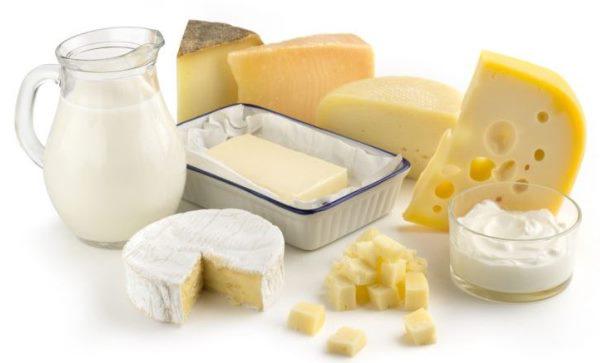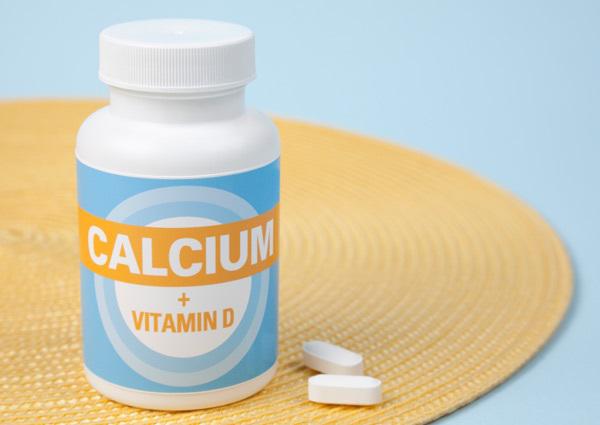Calcium supplementation for pregnant women when best? From which month to which month? Drink for how long? And how much more is needed? ... All questions will be answered through the following article.
WHY DO YOU MUST SUPPLY CALCIUM?
Everyone needs enough calcium to keep their bones strong. For pregnant mothers, calcium supplementation is especially important for the development of their bones, as babies often absorb the amount of calcium needed from their bodies, especially during the third trimester.
On average, each fetus needs to absorb 30g of calcium from the womb until birth, in which the calcium absorbed in the second trimester is 50 mg / day and in the 3rd trimester it is 250 mg. /day.
The function of calcium with fetal development includes:
- Play an important role for the healthy development of the jaw teeth.
- Support for the development of the nervous system.
- Support muscle formation.
- Helps cardiovascular development healthy
With the mother, calcium supplements help:
- Enhance breast milk.
- Reduce the amount of fat produced, thereby reducing the risk of obesity.
- Maintain a stable heart rate
- Helping blood clotting process take place normally.
To ensure the body absorbs enough calcium, the mother needs to supplement the amount of calcium needed during pregnancy.

SHE NEEDS TO ADD MORE CALCIUM
According to the recommendation from the US National Institutes of Health, the amount of calcium absorbed by women is as follows:
- 19 years of age and older, including pregnancy: 1000 mg (1 g) daily
- 14 to 18 years: 1300 g (1.3 g) daily.
The pregnant mother can only absorb up to 500 mg of calcium in one time, and 1000 mg in a day if divided into small amounts.
CONSEQUENCES WHEN THE MEMBERS ARE LOSS OF CANCER
Insufficient intake of calcium as above will cause adverse effects to the mother's body, such as:
- Your baby will have to absorb the amount of preventive calcium from the mother's bones, which in turn will reduce the strength of the mother's bones.
- Lack of calcium absorbed for bone will cause risk of osteoporosis. Osteoporosis causes the bones to shrink, becoming brittle and weaker.
- Maternal hypertension during pregnancy and before delivery.
- Causing disruption of blood clotting and hormone secretion.
- Reducing the amount of calcium in the blood will cause premature birth or low birth weight.
VARIOUS VEGETABLE FOOD FOR VEGETABLES

Milk and dairy products are all rich in calcium (Artwork).
The best way for moms to ensure their body's calcium needs is to eat plenty of calcium-rich foods. In particular, dairy foods or foods rich in calcium without milk extract should be used at least on 3 main meals a day.
Here are some calcium-rich foods that pregnant women need to supplement their daily meals:
Low-fat yogurt: Contains 415 mg of calcium in a box.
Fresh cheese: Contains 83 mg of calcium in 100 g of cheese.
Mozarella cheese: Contains 731 mg of calcium in 100 g of cheese.
Fresh milk: 291 mg of internal calcium 226 g of fresh milk.
Low fat fresh milk: 302 mg of calcium in 226 g of fresh milk.
Orange juice has calcium supplements: 200 to 260 mg of calcium in 170 g orange juice.
Canned salmon (raw bones and fish oil): 181 mg of calcium in 85 g of fresh fish.
Kale: 150 mg of calcium in 100 g of vegetables.
Cabbage: 105 mg of calcium in 100 g of vegetables.
White bread: 73 mg of calcium in 1 slice of bread.
Turn green turnip: 30 mg of calcium in 100 grams of turnip.
Spinach: 99 mg of calcium in 100 g of vegetables.
Breakfast cereals: 52 mg of calcium in 100 g of cereals.
From the list above, we can see that dairy products are the most important sources of nutrition. Therefore, it will be a great shortage for mothers if not provided with enough milk for some reason.
DO YOU NEED TO STOP CANCER?

Taking pills to take calcium during pregnancy is good or bad? (Illustration)
Calcium should be supplemented from functional foods when the amount of calcium from other foods is not enough to meet the mother's body needs during pregnancy.
The World Health Organization (WHO) encourages mothers, especially mothers at high risk of hypertension in pregnancy, to take calcium-containing functional foods from week 20 to the end of pregnancy. . However, mothers should ensure that the amount of calcium absorbed does not exceed the amount of calcium allowed per day.
Here are some points that moms should keep in mind about calcium supplements:
- If the mother is using calcium supplements in the form of tablets, each pill should be taken at least 1 to 2 hours apart.
- Tablets containing calcium carbonate contain good calcium but need a lot of digestive fluids to be able to resolve them. Therefore, it is best to use them during meals.
Functional foods not only compensate for calcium in the mother's body, but also reduce the risk of pre-eclampsia. Before deciding whether or not to use dietary supplements, mothers should know their downsides.
SIDE EFFECTS WHEN DRINKING CANXI
- Functional foods can make mothers feel bloated or constipated.
- Tablets containing calcium containing slate, bone meal, leveling or mollusc shells may contain a small amount of lead, harming the fetus.
- Too high calcium levels can cause kidney stones. They prevent the body from absorbing essential nutrients like zinc and iron.
Drinking calcium, therefore, is also quite a complicated issue. However there are still some ways to simplify this for mothers.
- Limit the amount of calcium absorbed every day at the allowable level. Unabsorbed pregnant mothers take more than 2,500 mg of calcium in 1 day
- Calcium is most often absorbed when vitamin D is added. A sufficient amount of vitamin D helps absorb calcium. Sunlight is a good source of vitamin D supplements, so be outdoors for a few minutes early in the morning every day.
Nurturing a life in your body is not easy. Mothers often have to go through a lot of difficulties and have to pay attention to each and every thing very small. Calcium supplementation is also one of them. Plan meals, follow them rigorously and maintain a balanced diet, all of which will ensure the mother meets the nutritional requirements that are set.
477/26 Nguyễn Văn Công, Phường 3, Quận Gò Vấp, Tp.HCM
028 7300 9306
koviphar@gmail.com
www.kovipharma.com